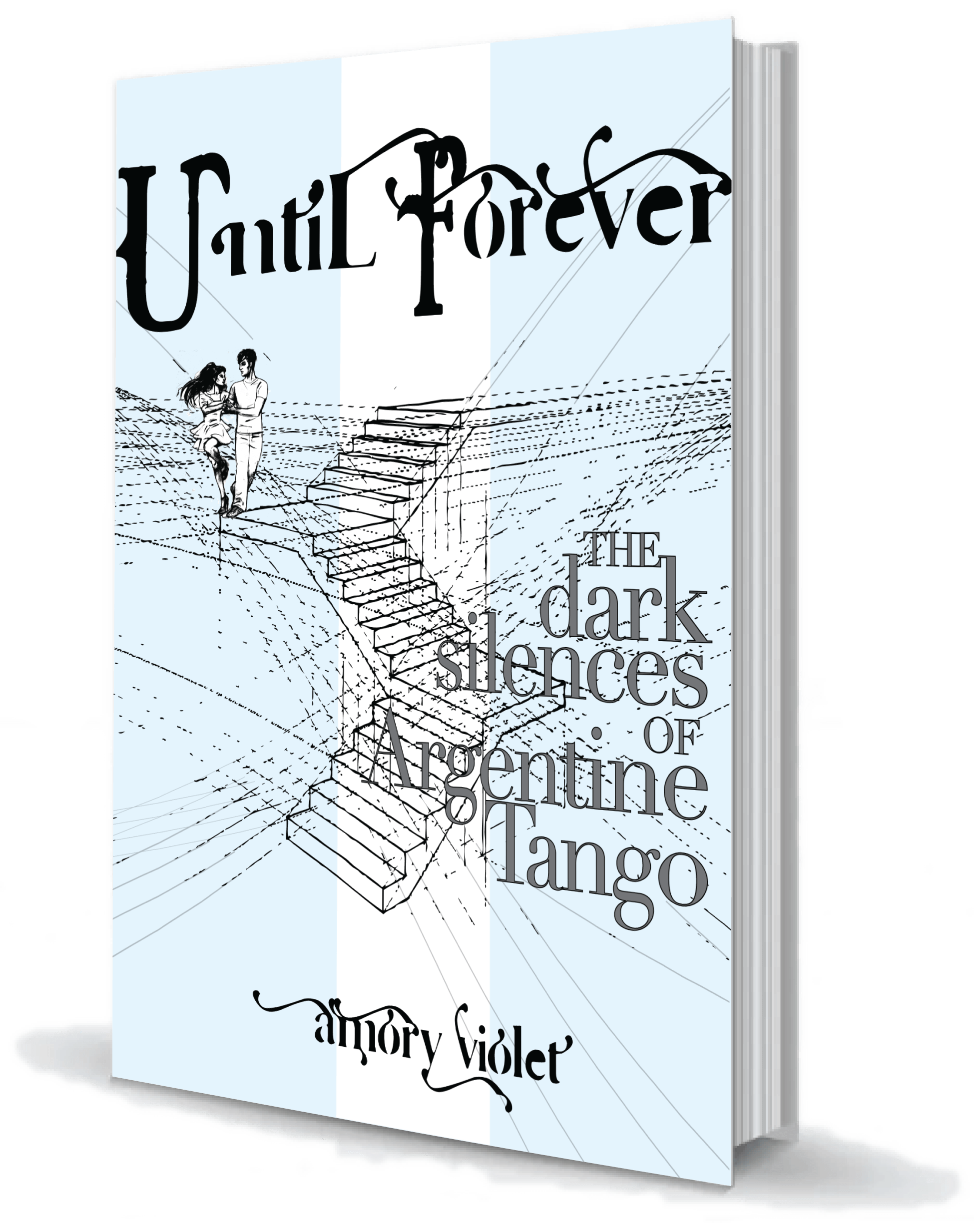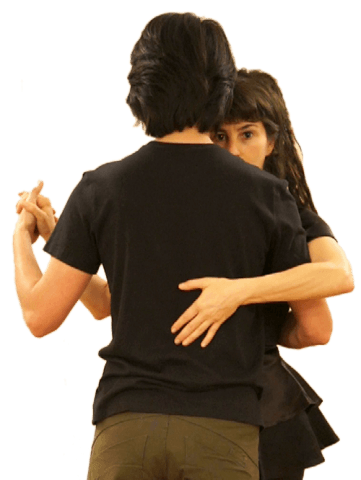This post is an ode to Club Atlético Argentino de Quilmes. It features Diego Armando Maradona, Lionel Andrés Messi, Thomas and James Hogg, H. de Winton and J. C. Thring, and Royal Shrovetide Football too, but it is primarily an ode to the students of Colegio Nacional de Buenos Aires that formed Argentino de Quilmes on 1st Dec 1899 and without whom there could have been no Maradona or Messi. We owe them a great deal indeed. I’ve written this as I’d like you to think of them in terms of tango, particularly in the Antipodes.
Tango is a dance, a culture, a strand of music, that came from and continues to emanate from Argentina. This was impressed on me the first time I went to a tango lesson, and has been impressed on me ever since. It is a great thing to me, great that there is a vibrant culture that still thrives in the face of increasing global commercial blandness – one day all restaurants will be Taco Bell (1) – and great that so much pride in a national and tribal culture can be manifested in a way that is positive and giving. There is, however, one slight catch for me. I’m not Argentine. I’m English.
Now that’s all good to me. Yes, there have been a couple of little tiffs between England and Argentina, most recently once again over some damp rocks in the Atlantic Ocean (2) but most famously over Diego’s Hand of God (3). These spats, however, have in no way distracted me from my admiration of Argentina and its culture. Furthermore my father told me long ago that, although I had traveled to and seen the beauty of the chicas of The Czech Republic, France, Italy, Germany, Hungary and many other places renowned, I’d seen nothing ‘til I got Argentina. Am I right guys?
But if tango is Argentinian, and inherently so, does this limit me from participating and understanding tango? I think it does. I think I am unlikely to be as good a tanguero as someone born into it, steeped in it. There could be many reasons for this, but for me it is the music, particularly the golden age tango music that is played at all the milongas and which I have come to appreciate to an extent but does not speak to me like the Future Sound of London that is playing as I write this. But here is my little secret: I don’t care.
This seems scandalous, particularly so when written on a tango blog, so allow me to explain by analogy. I will never be a great tanguero in the way that Maradona and Messi will never be great footballers. They are, in fact, crap. I doubt they’ve ever played a game in their lives, and certainly not well. How can this be, you say? Is Diego not one of the greatest players ever, if not the single greatest? The clue to my answer lies in the list of people in whose honour this is written.
Football, “real” football is an English game (4). It is ours, mine. When England hosted the European Cup in 1996, the English fans sang “Football’s Coming Home”, which the Germans have since sung back at us to rub in our faces when they beat us. Apart from the 5-1 in Munich (5), that’s unfortunately happened too often. Oh, the pain of South Africa (6)…
But the thing is we weren’t playing them at “real” football. Royal Shrovetide Football (7) is the last game of “real” football that I personally am aware of, having been played in England since at least the 12th century if not earlier. For those not aware of it it’s played by a whole town (Ashbourne) across the whole town (the goalposts are 3 miles apart), and the rules are limited to:
- Committing murder or manslaughter is prohibited. Unnecessary violence is frowned upon.
- The ball may not be carried in a motorised vehicle.
- The ball may not be hidden in a bag, coat or rucksack etc.
- Cemeteries, churchyards and the town memorial gardens are strictly out of bounds.
- Playing after 10 pm is forbidden.
- To Score a Goal the ball must be tapped 3 times in the area of the Goal.
The Wikipedia entry linked below has more info so I won’t repeat all of it, but it’s worth noting that “It is possible for the entire game to be played solely in the river”. That’s one of the most brilliant and ridiculous sentences I’ve read. It takes a particular brand of perverse, stubborn, fantastical idiocy to live in the reality of such a game, and we English are nothing if not fantastic idiots.
So “real” football is an English game. But football isn’t. The game grew out of its quaint roots, and is better for it. And there are some people to thank, particularly in countries where it was adopted early such as Argentina. Let’s go through some history to see who and how.
Two English immigrants (Thomas and James Hogg) allegedly organised the first recognised football match in Argentina. They played following rules developed from those laid down in England in 1863 by a Cambridge University committee of H. de Winton and J. C. Thring. Football was quickly serious business in Argentina, and it was the third league to be founded in the world (only England and The Netherlands existed prior). So in a sense we owe the existence of demi-gods such as Diego and Lionel to these folk.
However they are not as important, to me at least, as the founders of Argentino de Quilmes. This famous club was founded as a reaction against British hegemony at the local Quilmes Atlético Club, which did not permit Argentine natives to play. You see, up until then football was still an English game even in Argentina, and with the then power of Britain behind it xenophobic and short-sighted rules and imperial cultural snobbery had been allowed to remain. But the students of Colegio Nacional de Buenos Aires changed all that, and took football to be their own. It even went down to details: unlike Quilmes AC, which honored visitant players with the traditional British tea, the recently founded club Argentino de Quilmes offered mate instead. And the rest, they say, is history.
Football is infinitely better off for having had Argentina take it to her heart, having her take note of but be choice with applying the coaching ideas that came out of Britain (initially) and elsewhere, and perfect it herself. I grew up watching Argentine teams carve up opponents by moving the ball simply and efficiently around the pitch, keeping hold of the ball, and it was an age away from the stodgy fare in England during the same period, particularly in the post-Heysel (8) years. Kinda like Barca today. And that was also brilliant.
What is authentic Argentine Tango?
This may not seem relevant to tango to you, but it is to me. Tango is kept alive in my eyes as a museum piece, both as a dance and also as music, with recorded music played and preferred over live musicians. And don’t get me wrong, this is important. I am proud that the heritage of a 900+ year old football tradition is kept alive in England and it would even be joyous to see the tradition expanded to the Rio de la Plata if only for sh!ts and giggles. But we do too much of the flame-carrying, I think. It is also important to me that we take on tango as our own and decide what we want to do with it. Otherwise what are we adding to its global culture? We are presently just passengers.
Australians famously suffer from cultural cringe so we would seem to be the least likely place to have the brass to be creative in tango. However, we are also the culture that is most up-front about telling people “to get their hand off it”. So why not just do that? Next time someone tells you that you aren’t doing things the authentic BA way, just point them to the World Game and let them see how it’s grown.
So, I personally don’t ever intend to be a great tanguero in the same way that few (any?) Argentinians aspire to be great “real” footballers. But I do aspire to take the lessons that I get from Argentine maestros and my local teachers and apply them in my own musical and body-movement heritage. And whilst I am unlikely to be the next tango equivalent of Diego or Lionel and perhaps you aren’t either, remember that it took decades of development in Argentina for them to appear. Somebody had to start somewhere. Why don’t you be our students of Colegio Nacional with me and start something here? Sure, we’ll create lots of ‘orrible mess, and much of it will be cringe-worthy. But we may also creates little nuggets of beauty. Wouldn’t it be lovely to have a maestro come over to see us and be surprised and overjoyed to be taking something fresh back with them?
Tango was and is a beautiful form of dance and movement that incorporated elements of the Argentine melting pot to create something that is Argentina’s gift to the world. Many of the people that created that gift were gifted, with rhythm that flowed through them and bodies of balance, power, and poise. But most of the people that contributed to and supported to that culture weren’t, they were ordinary like me and like-as-not most of you. They didn’t wait for a maestro to give them permission to dance in a way that made sense to them to music they loved, they just did it. Why don’t you?
5 May 2012
Notes:
(1) See Demolition Man, a guilty pleasure of a film. Complete nonsense that got me through revision for 1st year uni exams by repeated viewings on late night insomniac’s TV
(2) I am of course referring to The Falkland Islands, or Las Malvinas. If I’m talking about cultural respect and overlordship, and I’m English and talking about an Argentinian artform, I probably ought mention them. I have done so, and will only say that the issue of ownership of the damp rocks is important, but not so important that anybody should ever die over it
(3) The damp rocks are one thing… but we’ve never forgiven Diego for this… //www.thesun.co.uk/sol/homepage/sport/football/3651301/Hand-of-God-25-years-on.html
(4) I have had people deny that football is an English game to my face. But it is. Yes, whilst there were other similar games played in China and elsewhere the game that we now play started in England. If you don’t believe me go to FIFA’s website, and they’re Swiss so have no self-interest in saying and also can’t lie. If they do they explode. Or lose the ability to make clocks and chocolate. Or something. //www.fifa.com/classicfootball/history/index.html
(5) See //news.bbc.co.uk/sport2/hi/football/1521103.stm for a write-up of the greatest night of football ever. EVER.
(6) And this was the worst. Pathetic. //news.bbc.co.uk/sport2/hi/football/world_cup_2010/matches/match_51/default.stm
(7) //en.wikipedia.org/wiki/Shrovetide_football. Read it. Laugh. Read it again. Make travel plans to be there.
(8) The Heysel Tragedy, a dark day: //en.wikipedia.org/wiki/Heysel_Stadium_disaster














